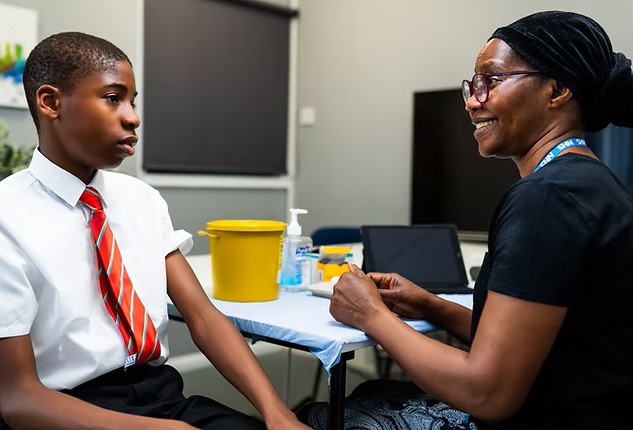As a pioneer Emma Clarke’s story has, for far too long, been untold in the annuls of history.
But now, during this Black History Month, the trials and tribulations of Britain's first Black female footballer is being recognised.
Born in Bootle, in Merseyside, in 1876, and lived with her mother Wilhelmina Clarke, of Black Dutch heritage, father, William and 13 other siblings, she was a professional footballer by the time she was 12 years old, playing her first match for the British Ladies’ team in 1895.
They were not an international team, but an early all-women's football club patronized by Scottish writer, war correspondent, and feminist, Lady Florence Dixie.
From the age of 15, Emma worked as a confectioner's apprentice, and received her formative sporting education playing the game in her neighbourhood streets. Making an appearance for a team described as "The New Woman and Ten of Her Lady Friends" against "Eleven Gentlemen", she made her debut for Mrs Graham's XI - a team named after Suffragist Helen Graham Matthews, who lived in the area close to where Clarke grew up.
Reports at the time, however, would describe the women's game as a grotesque. In 1897, she was selected as part of the team which toured Scotland that year, and games regularly attracted crowds numbering in their thousands for which she was paid approximately a shilling a week.
Described by one newspaper at the time as "the fleet footed dark girl on the right wing", Clarke continued her career as a footballer until at least 1903. For decades since, her contribution to the game was mistaken for goalkeeper Carrie Boustead, once described by a journalist as "a coloured lady of Dutch build", who was later confirmed to be white.
She was rediscovered by artist Stuart Gibbs only when a photo of the team that toured Scotland was discovered, with him identifying that the player in question was Emma Clarke, not Boustead.
The theatre company, Futures Theatre, wrote the play ‘Offside’, which celebrates the contribution women have made to the game and which dramatizes the story of Clarke. Further to that, in 2019, a blue heritage plaque commemorating Clarke was unveiled at Campsbourne School, Hornsey, which is the site of her team, the former Crouch End FC.










